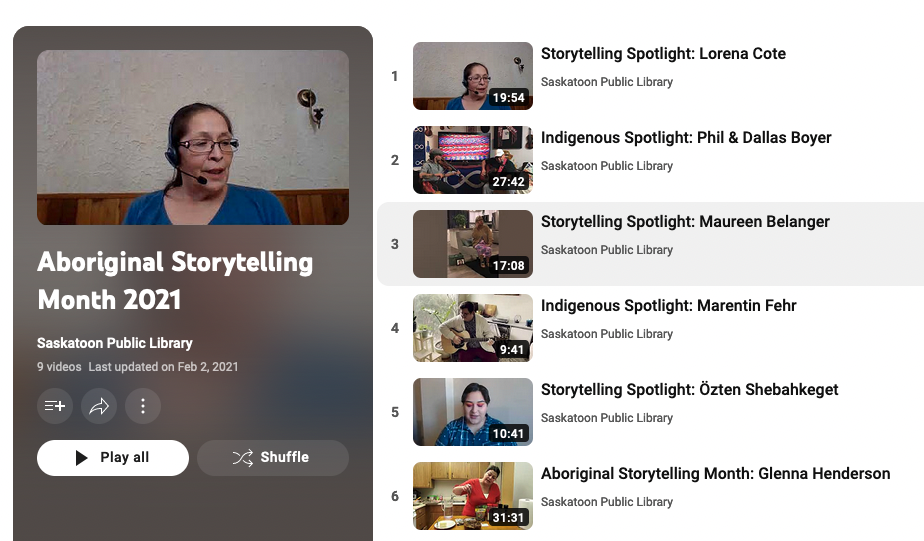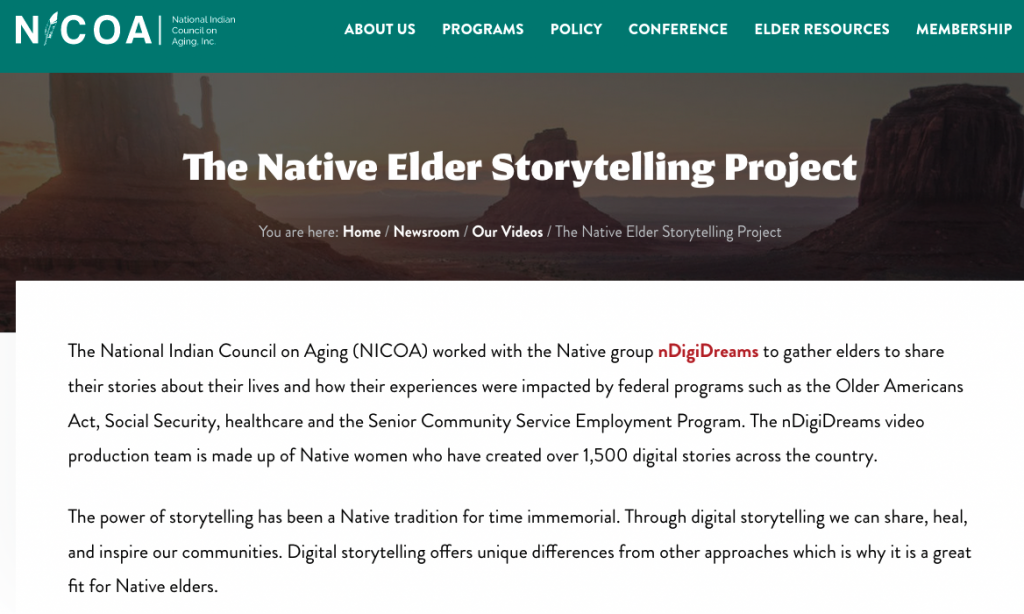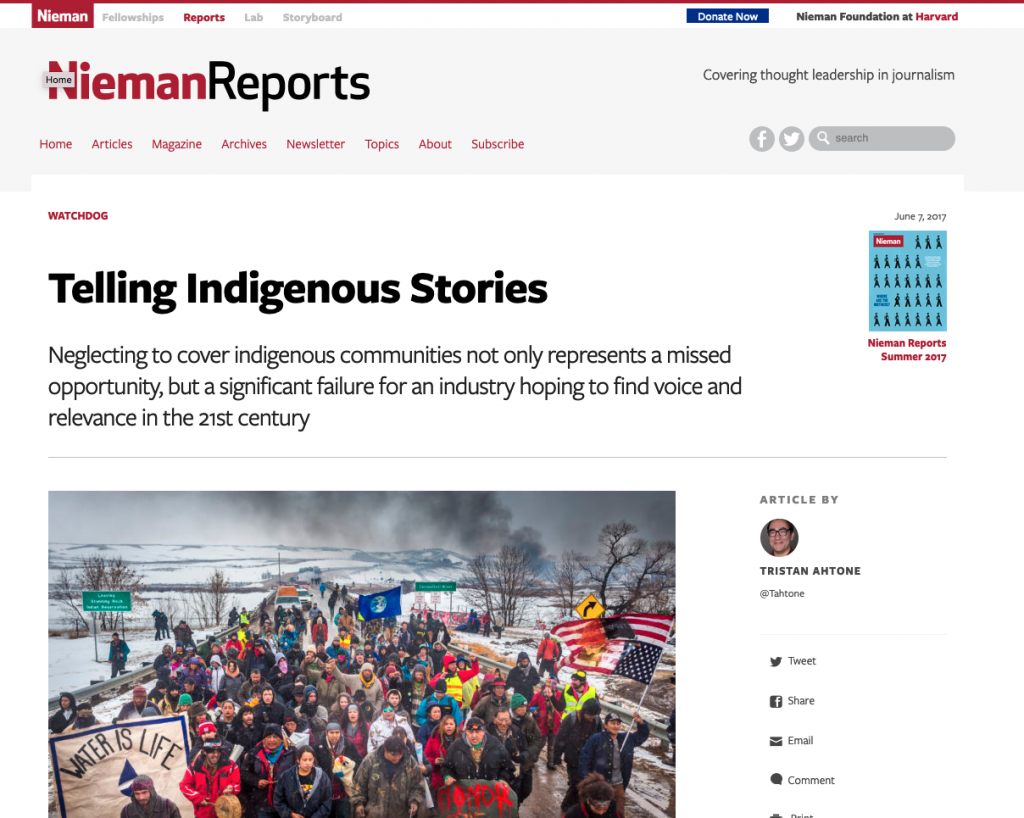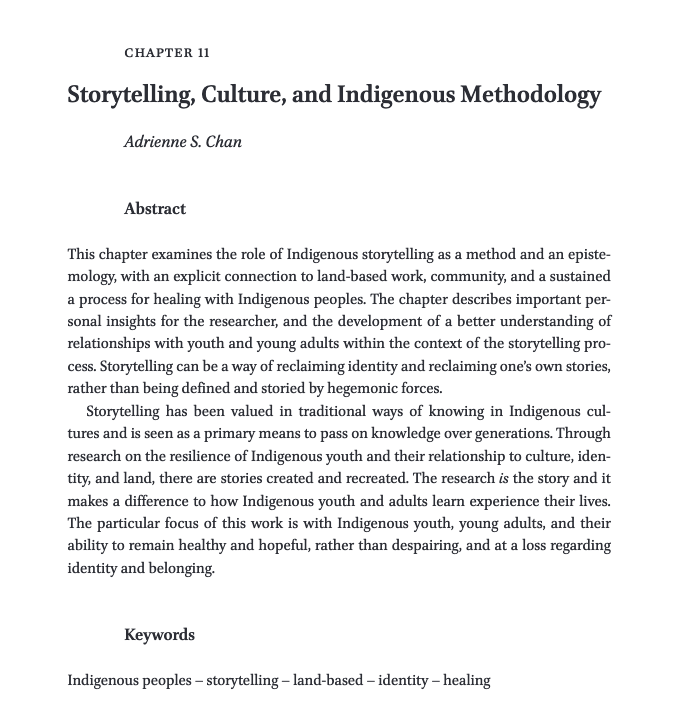As we near the end of this journey, I continue to seek more examples of Indigenous elders telling their stories to better understanding the process and their story. These examples are some that I may include in my final project video repository.
- The Sacred Relationship
- Storytelling videos from Saskatchewan Library Services
- Our Elder Stories
- First Nations University Elder Story Content
- NCOA Native Elder Storytelling Project
- The Sacred Relationship
Beautiful website that includes middle school curriculum and resources related to our relationship with water as led by elders.
https://www.sacredrelationship.ca
- Storytelling videos from Saskatchewan Library Services
As part of Aboriginal Storytelling Month in January 2021, Library Services for Saskatchewan Aboriginal Peoples celebrated Indigenous storytelling
https://www.youtube.com/playlist?list=PLRUK7BHZUVfpvqy_Z-5tR3JcAw4rCML7
- Our Elder Stories
Judy Iseke’s research has been front-and-centre for much of my research related to storytelling and video. She provides great insight into the importance of Elder knowledge and storytelling. She hosts this great website:
- First Nations University Elder Story Content
Elder videos produced by First Nations University. The length of the video are succinct but the content is powerful.
https://opentextbooks.uregina.ca/financialempowerment/back-matter/video-interviews-with-elders/
- NCOA Native Elder Storytelling Project
The National Indian Council of Aging (in the United States) posted a number of videos of elders sharing their stories and experiences.
https://www.nicoa.org/newsroom/videos/the-native-elder-storytelling-project/







